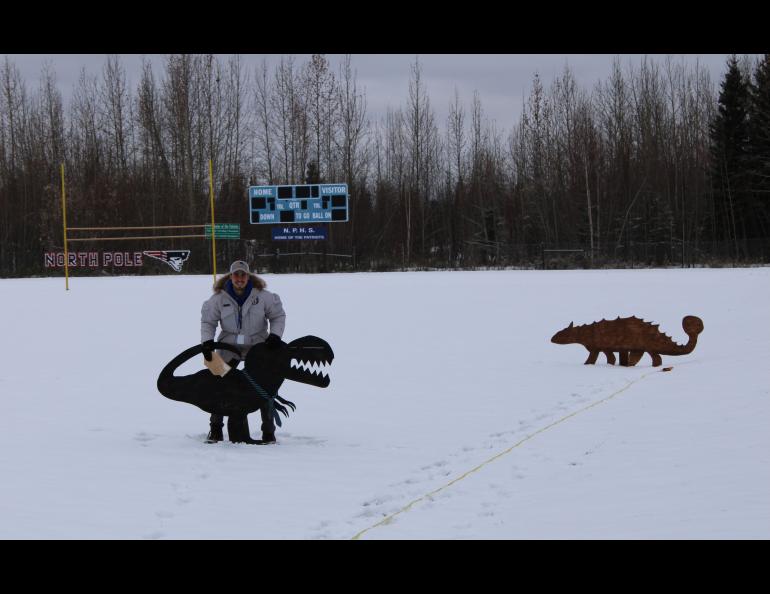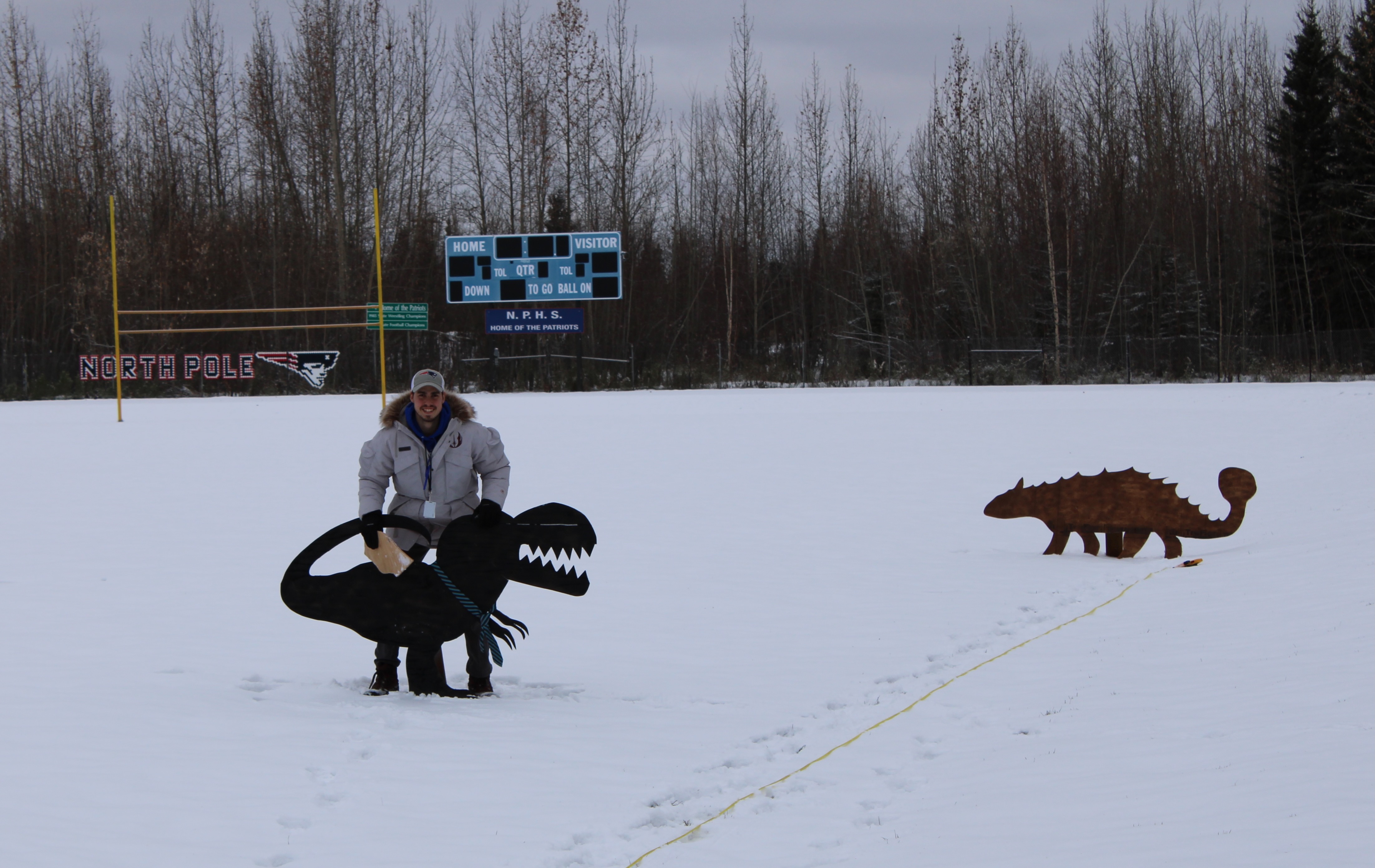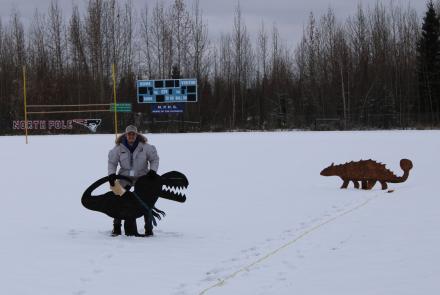Q&A with Zack Williams, 2024 UAF Geophysical Institute Schaible Fellowship recipient
GI: Tell us a bit about yourself (Hometown, prior education, whether you are new to Alaska)
Zack Williams: I was born and raised in Grants Pass, Oregon, which is roughly the same size as Fairbanks. After high school, I completed my bachelor’s in applied mathematics from Oregon Institute of Technology in 2020. There I competed for the track and field team as a pole vaulter. With COVID lockdowns, there was a great deal of uncertainty about future opportunities. This led me to pursue a career in teaching before finding my way back to the field of physics.
While teaching middle school math part time at a public charter school, I earned my master’s in teaching from Pacific University in Oregon. Over half the year was taught online due to the ongoing pandemic. The next year I taught math at the high school I attended, before moving to North Pole to finish out my teaching career at North Pole High School. At both high schools I was an assistant track coach. I genuinely enjoyed the two years that I taught at NPHS. The staff and students were great to be around and taught me the way of Alaska life. I hope to stay connected to NPHS and create educational outreach opportunities for the students there and around the FNSB school district.
The move to Alaska was a big leap. It was partially in anticipation of this program but more so due to the great opportunities and adventure that this great state has to offer — especially since there was no guarantee that I would be admitted to the program at the time that we moved. Being a teacher was a valuable stepping stone to get where I am today. Not only did it provide the finances needed to move to Alaska and for my wife to complete her master’s, but it also gave me valuable insight into what kind of educational outreach will be most effective while I work at the GI.
Q: Anything else you’d like us to tell us about yourself (hobbies, family, etc.)?
A: I have been happily married to my wife Linsey for the past three years. She is a speech-language pathologist (speech therapist) in Fairbanks and has been very supportive of me pursuing my dream of becoming a physicist.
Like most people in Alaska, I enjoy the outdoors by just about any activity: rock climbing, whitewater kayaking, mountain biking, etc.
We made a number of friends through a local Bible study who really welcomed us to the area and showed us a lot of the great adventures in Alaska. I’ve spent the last two years exploring the state during weekends and holiday breaks, loving every part of the adventure. There is so much more I have yet to explore.
Q: What is your area of study?
A: I am pursuing a Ph.D. in space physics.
Q: How did you become interested in that area of study?
A: During undergrad, I was fortunate enough to take a number of physics electives and even tour a large physics lab at another Oregon school. Since then I have been interested in some sort of higher education in physics but couldn’t decide on what to specialize in. My senior year of undergrad I took a sequence of numerical methods courses and completed an independent study on mathematical modeling using a statistical approach similar to that of a Monte Carlo simulation. These courses showed me the importance of high-level computation and how they are applicable in a vast number of settings. This guided me to space physics at UAF, as many of the courses take a numerical approach to modeling natural phenomena.
Q: What will your fellowship work focus on?
A: My work at the GI will focus on modeling magnetospheric interactions at Saturn. This is an ongoing project that utilizes data from NASA’s Juno mission.
Q: Why study at UAF and the GI?
A: Dr. Peter Delamere’s work in using numerical methods and mathematical modeling to solve relevant questions was one of the first things that I noticed about UAF when researching potential graduate programs. The Geophysical Institute has a long history of being at the forefront of research in the Arctic and magnetospheric interactions. The computational skills that I can learn here are vital in preparing me for a career in mathematical modeling.
Q: How important to you is this fellowship? What will it enable you to do?
A: I am incredibly grateful for the Schaible Fellowship as it allows me to focus on my studies and begin research earlier than otherwise would have been possible. This allows me to collaborate with graduate students within my department, training me to further ongoing projects. After they graduate, I will be able to continue these projects with confidence and create coherence in the transition of the projects.






